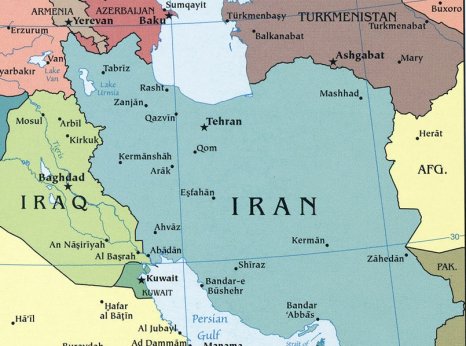Iran: Men At Risk Of Finger Amputation Within Days

Hadi Rostami, Mehdi Sharfian and Mehdi Shahivand were accused of breaking into the houses of four individuals and robbing safes containing gold and cash. On 19 November 2019, following a grossly unfair trial before Criminal Court 1 in West Azerbaijan province, they were sentenced to having their fingers amputated. Their trial relied on forced “confessions” which the men have said were obtained under torture while they were detained and interrogated without access to their lawyers in a detention centre run by the Investigation Unit of Iran’s Police (Agahi). According to an informed source, interrogators forced Mehdi Sharfian and Mehdi Shahivand to “confess” to committing burglaries in which they had no involvement and to implicate Hadi Rostami in the same burglaries. In a letter written to the Head of the Judiciary in September 2020, reviewed by Amnesty International, Hadi Rostami said that interrogators punched, kicked and beat him with various instruments. He also said one of the interrogators demanded that he sign a blank piece of paper and that he did so only when he reached the point of physical and mental collapse. He said that prosecution authorities subsequently added, without his knowledge and consent, the details of his charges to the blank paper to make it appear as though he had accepted the charges. All three men retracted their “confessions” during their trial and told judges they were made under torture, but both the Criminal Court and the Supreme Court failed in their obligations to exclude the “confessions” as evidence and order investigations into their torture allegations.
The verdict of the Supreme Court, reviewed by Amnesty International, briefly mentioned in a few general words that Hadi Rostami had complained about torture, but did not provide any further analysis. Hadi Rostami has made numerous official complaints to judicial bodies which have been ignored. In March 2021, he complained to a representative of the Head of the Judiciary during his visit to the prison; the representative gave him false assurances that his case would be resolved. Hadi Rostami has also raised his case directly with the current Head of the Judiciary, Gholamhossein Mohseni Eje’i when he visited Ilam prison, Ilam province, while he was being held there, but to no avail. Previous plans by the Iranian authorities to carry out the three men’s amputation sentences between 2020 and 2022 were halted due to international pressure.
In March 2025, Hadi Rostami wrote a letter from inside prison pleading for help from the international community:
“I…have been imprisoned in Urumieh Central prison since 2017 on charges of ‘theft’ and sentenced to the amputation of four fingers on my right hand, despite my innocence…in a detention centre run by the Investigation Unit of Iran’s Police (agahi), I was forced to sign blank papers under severe torture. Even then, I continued to assert my innocence, but my voice was ignored...”
At least two other men - Kasra Karami and Morteza Esmaeilian – held in Urumieh Central prison are also under finger-amputation sentences in Urumieh Central prison. On 29 October 2024, the authorities carried out the amputation sentences of Kurdish brothers, Mehrdad Teimouri and Shahab Teimouri, in Urumieh Central prison. Afterwards, they transferred the brothers to a hospital outside prison for medical care. However, they returned them to prison within hours, despite their need for continued medical care, and held them in solitary confinement cells for several days while denying them access to healthcare.
Iran is obliged, under international law, to prohibit and punish torture in all circumstances and without exception. Despite this, Iran’s Islamic Penal Code continues to provide for corporal judicial punishments amounting to torture, including amputation, flogging, blinding, crucifixion and stoning. According to Abdorrahman Boroumand Center for Human Rights in Iran, Iranian courts have issued at least 384 amputation sentences since 1979. The organization has also recorded the implementation of 223 amputation sentences since 1979. The Iranian authorities do not publish official figures of amputation sentences issued or carried out, and the real numbers are likely to be far higher. Iranian law requires that a physician be present during the implementation of corporal punishments, in direct violation of ethical guidelines and international standards which expressly prohibit health providers’ involvement in torture. Physicians present during the implementation of amputation sentences are complicit in the crime of torture.